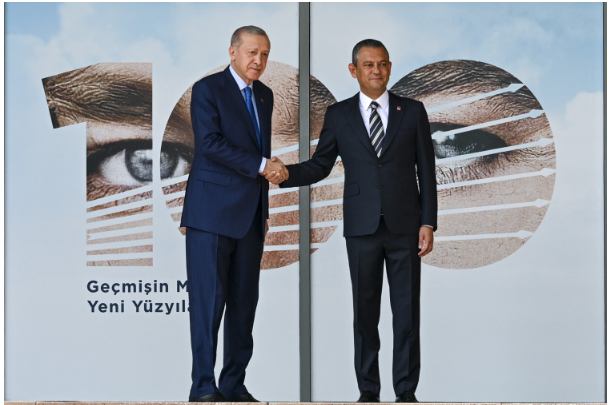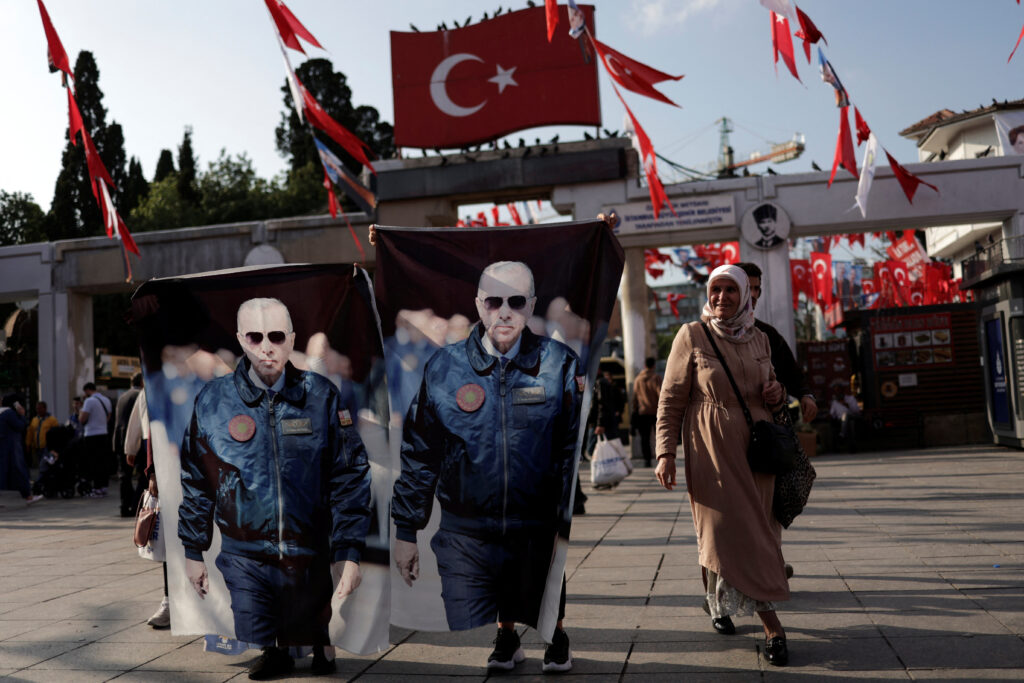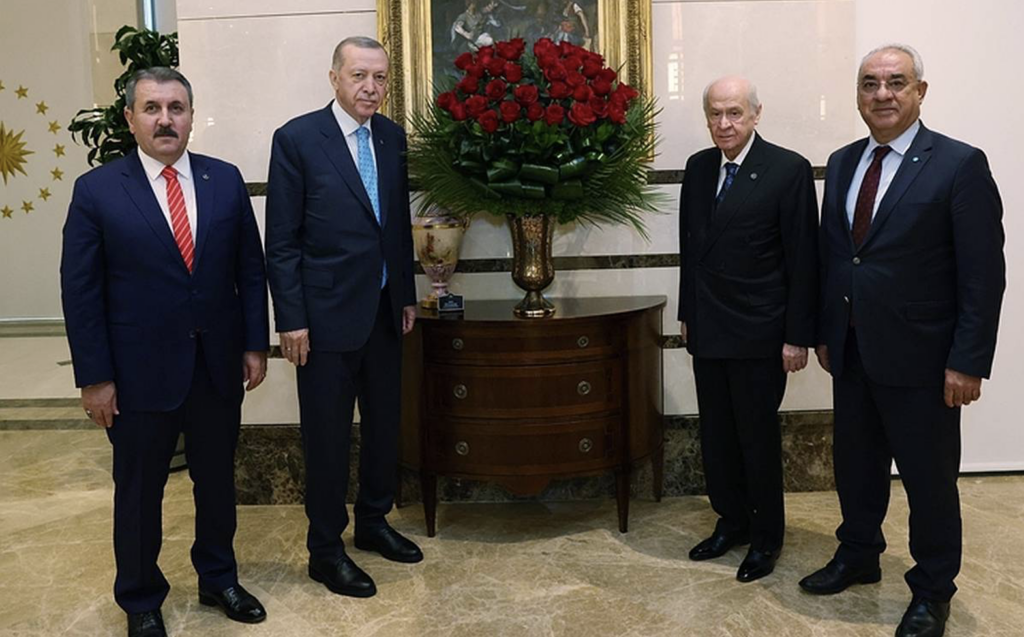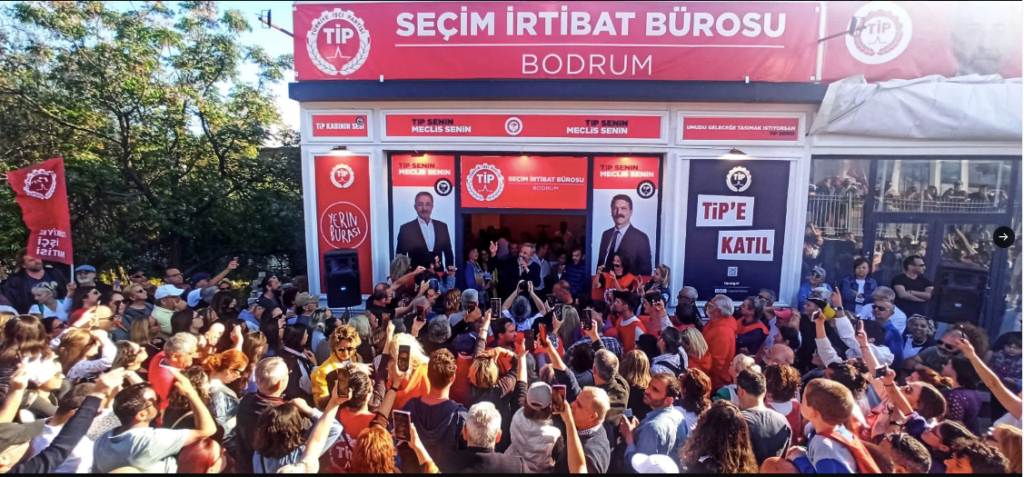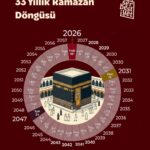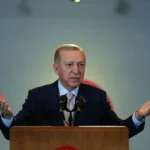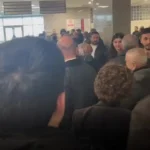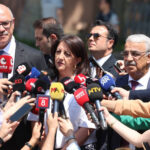Gürbüz Özaltınlı
The Turkish original of this article was published as Tartışmak zamanı on 8th June 2015.
These elections were of truly strategic importance. And they have resulted in a power configuration that has strategic implications commensurate with that importance. At the moment these are piping hot, and I suspect that we may not be fully capable of grasping their potential impact on our political life. We can only sense that we are in the midst of an all-shifting earthquake.
These are not results that are compatible with apologetic interpretations which begin by referring to "the fatigue of thirteen years" or the burden of "too long being the first party."
First and foremost, this is Erdoğan's first electoral defeat. He was the one who, as the main actor on the political stage, set the agenda, interacted directly with the people, and fashioned political discourse. As Vahap Coşkun has written, in case of failure as well as success it wouldn't be fair to bill anybody other than Erdoğan. I am not simply referring to what he has done since he became president. His blatant interventions in a series of topics like the transparency law, the candidacy of Hakan Fidan, the interest rate debate, the question of the ministers accused of corruption, and the Dolmabahçe agreement constitute only one part of the story. An accurate reading of this defeat requires us to dig deeper.
It might be helpful to start with a framework that I had suggested earlier (AKP gerçeği ve Erdoğan’ın liderliği üzerine düşünceler [Reflections on the fact of the AKP and Erdoğan's leadership], 11.3.2015). In that article, I had pointed to the multi-layered sociology of the AKP electorate, trying to illustrate through examples the various objections to Erdoğan's line that it might engender. I had argued that the weakening of the "glue of threat perceptions" helping to bond conservatives could devalue the perceived need for an "unbending will" or a "single decision-maker" while promoting complaints against current policies or practices. I had voiced my anxiety about the negative fallout that was accumulating in many areas ranging from corruption allegations to the new presidential palace, or from disagreements over the interest rate to those Middle Eastern policies that were putting a strain on relations with the West.
Popular estrangement due to over-concentration of power
Taken singly, such incidents might not have amounted to much. But the real focus of all such critiques was this: Across civil society there was an emerging hunch that their increasing sense of unease was going unheeded on the political scene, and to think that "the unbending will" that was being made so much of was closing itself not only to the forces of the old order, but also to influences emanating from within. People are capable of disagreeing with yet tolerating certain attitudes from the political movement that they support. But if you come to believe that your preferences no longer matter, and your disapproval has been rendered permanently ineffective, this becomes a major issue in itself. A crisis of representation arises.
There can be no doubt whatsoever that this is how the "presidential system" which Erdoğan put all his weight behind came to be regarded by a section of the conservative electorate. It has also become clear that this segment is large enough to deny an absolute majority to the AKP. This, I would say, is a huge lesson. It refutes all the speculations about a narrow-minded "culture of submission" that is supposed to characterize conservative sociology. Let us simply make a note of this as a positive for democracy.
Missions and realities
But there is another and equally important question, I believe, that we have to address. Turkey's conservative sociology is not one that can unconditionally assume a role of "patron to the entire oppressed Islamic world." It is not homogenous enough to respond wholeheartedly to such ideology-intensive appeals. It displays a multi-layered texture comprising urbanizing, modernizing, and (as Etyen Mahcupyan has frequently stressed) increasingly hybrid elements. It is true that such spiritual missions may have an exciting impact on a society deprived of its self-esteem. But there are also risks associated with such missions, and powerful pragmatic sensors are also capable of being activated to warn people against them.
Once the overall orientation of the Arab uprisings had become clear, and in the aftermath of the 17-25 December attempt to bring the government down, but with victory in the local elections to build on, new adjustments could have been made in Middle Eastern politics and relations with the West. But this is very far from what actually happened. A rigid policy based on previous expectations was maintained. I suspect that the government hoped to benefit from such hard-lining in domestic politics. Instead, it seems to have backfired as it did not reverse the AKP's implosion toward its core constituency, and had a negative impact on the voting as a whole. This, then, is a second major lesson
— that a movement with such grand claims of transforming Turkey, which should therefore have been able to open up to the secular elements of society, should end up suffering losses even in its own base through such ideological over-emphasis. It would be in Erdoğan's own interest, I would say, to try and read the election results through this perspective.
Ethnicity trumping conservatism
Another vital issue is the Kurdish question. We can easily say that the HDP is the single biggest winner of these elections.
For democracy and the flow of politics into legal channels, it is of course positive for the Kurdish movement to be represented strongly in parliament. But whether such expectations will be realized in practice will depend on the route to be taken by the Kurdish political movement.
There is another point that I would like to highlight. Recently there has emerged a widespread perception of the HDP developing into "a party for all Turkey." This may lead to obscuring a new reality, which is that the HDP has become more of a "Kurdish party" than ever. It has won almost unrivaled representation in the Kurdish region. At no point during the current protracted revolt has there been such a comprehensive political unification within Kurdish society.
Previously, the AKP had been capable of achieving an integrative equilibrium in the region through the conservative Kurdish population under its influence. All global or local actors were able to make their political calculations on this basis. Now, however, the AKP has significantly has lost its ability to unite some Turks and Kurds on the basis of a conservative identity, while the Kurdish movement has succeeded in unifying conservative and secular Kurds on the basis of an ethnic identity. This is novel and very significant development.
In my view, this situation calls for both sides to behave more responsibly. It is now more difficult than ever for future governments to overlook Kurdish demands, to delay or to suppress them, or to disregard their political representation. And if Kurdish politicians insist on policies that do not take Turkey's overall checks and balances into account, or try to impose extreme policies in unrealistic disregard of underlying conditions, comprehensive destruction may be the result.
Certainly it is Erdoğan's policies that are primarily responsible for this new distribution of political power in the Kurdish world. I believe that the "great break" came during the Kobani siege. Erdoğan got his priorities all wrong during that crisis. He perceived the autonomous Kurdish region forming in Syria as the primary threat. He thought that the best response was to impose his own terms on the PYD or else to abandon it to its fate while welcoming the Kurdish population fleeing before the ISIS attacks. He was mistaken. And he did not heed any warnings. He underestimated the material and spiritual value that Kobani held for both the PKK and the Kurds of Turkey.The latter had been led by feelings of defending their own land and achieving a first-ever territorial sovereignty anywhere to embrace Kobani wholeheartedly. They read Erdoğan as trying to have them strangled by ISIS, and this caused Erdoğan to suffer the irreversible loss, in Kurdish eyes, of his trump card of "moral superiority." He even went to the point of openly opposing the US arming of the PYD against ISIS. After all this, pleading that "they did not support the parliamentary vote [authorizing across-the-border operations]" or that "they did not even want the Peshmerga" or that "we actually opened a whole corridor for the Peshmerga" hold no political value whatsoever. The entire policy was built on false premises. Today, who can possibly claim that losing the Kurds of Turkey for the sake of suppressing Kobani was "good political management"? Erdoğan's intervention against the Dolmabahçe agreement and communiqué, his assertion that there is "no Kurdish question" and his subsequent shift to a nationalistic discourse helped only to rub more salt in the wound. Though of lesser importance, we should not overlook the fact that the 10 percent threshold was never removed. Sustaining undeserved seats in parliament, it was ultimately against the AKP that this morally indefensible policy boomeranged.
Not a god but an ordinary human being
In addition, the elections have also served to highlight another truth rising above everything else that I have enumerated: If a political movement gravitates toward basing its whole existence on the cult of a single leader; if it begins to forget that regardless of his abilities, that leader is not a god and that he is not above mistakes, criticism or discussion, it is to itself that that movement will be causing the greatest harm.
Let me cite a passage from Halil Berktay's last piece that I wholly agree with: “Perhaps the most important issue is this: The AKP… has a need, and a very great need at that, to listen not to those who applaud whatever they do and whatever Erdoğan does, but rather to those that come up with some serious criticism…"
And in that same vein, let me finish with the heading of my very first article that I wrote on 17 November 2013, after we had collectively quit Taraf and were just forming this website: "Erdoğan can also be criticized, and woulkd be much the better off for it…"
Yazıyı beğendiysen, patronumuz olur musun?
Evet, çok ciddi bir teklif bu. Patronumuz yok. Sahibimiz kar amacı gütmeyen bir dernek. Bizi okuyorsan, memnunsan ve devam etmesini istiyorsan, artık boş olan patron koltuğuna geçmen lazım.
Serbestiyet; Türkiye'nin gri alanı. Siyah ve beyazlar içinde bu gri alanı korumalıyız. Herkese bir gün gri alanlar lazım olur.




